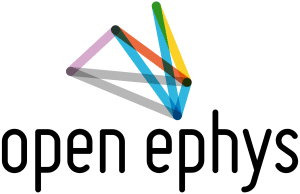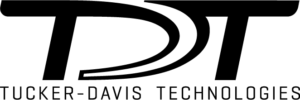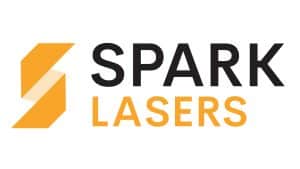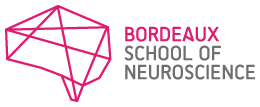Genetically encoded tools for neuroscience enable precise observation and manipulation of defined neural cell types, in behaving animals. This course provides both breadth and depth in the theoretical and practical application of these tools across a variety of classes including experimental designs, and with an emphasis on hands-on experience.
After completing this course, a student should expect to be knowledgeable about a wide range of molecular tools, have experience with multiplexed read/write experimental design, understand how to integrate optical hardware with rodent behavior, and appreciate nuances between 1-photon and 2 photon implementations. Interpretation and data analysis are integrated across the course.
Course directors
- Ofer Yizhar (Weizmann Institute of Science, Israel)
- Anna Beyeler (Bordeaux University, France)
- Lief Fenno (University of Texas, USA)
April 3 – 9:00am
Ofer Yihzar (Weizmann Institute of Science, Israël)
What is optogenetics good for?
April 3 – 11:00am
Michael Bruchas (University of Washington, USA)
Decoding the Neurobiological Mechanisms of Neuromodulation.
April 4 – 9:00am
Jonas Wietek (Charité – Universitätsmedizin Berlin, Germany)
200 years of discovery, 20 years of innovation: The Journey of Optogenetics and Rhodopsins.
April 4 – 11:00am
Stefan Herlitze (Ruhr-University Bochum, Germany)
MoleOptogenetic control and visualization of GPCR pathways, or a journey from mouse brain to bioluminescent and fluorescent fish.
April 5 – 9:00am
Simon Wiegert (University of Heidelberg, Germany)
New lights on an old concept : investigating the link between pupil linked arousal neuromodulation.
April 5 – 11:00am
Marie Carlen (Karolinska Institute, Sweden )
What defines the prefrontal cortex? Large-scale spiking surveys outline the landscape of the mouse prefronal cortex.
April 9 – 9:00am
Valentina Emiliani (Vision Institute, France)
Holographic all-optical manipulation of neuronal circuits.
April 9 – 11:00am
Cyril Herry and Daniel Jercog (Bordeaux University, France, University of Copenhagen, Denmark)
From single cell to population analysis of defensive behaviors.
April 13 – 9:00am
Lief Fenno (University of Texas, USA)
Engineered platforms for complex AAV cargo expression.
April 13 – 11:00am
Yaniv Ziv (Weizmann Institute of Science, Israël)
Representational drift in the hippocampus and cortex.
April 16 – 9:00am
Christina Kim (UC Davis, USA)
Optogenetic reactivation of drug-ensembles using activity integrators.
April 16 – 11:00am
Karl Deisseroth (Stanford University, USA)
Probing Mysteries of Brain Function: An Unexpected Journey Through the Inner Workings of Microbial Membrane Channels.
April 19 – 9:00am
Mackenzie Mathis (EPFL, Swiss)
Measuring neural and behavioral dynamics.
April 19 – 11:00am
Anna Beyeler (Bordeaux University, France)
Linking anxiety and emotional valence in circuits of the amygdala and insula.
Nicolo Accanto – Institut de la Vision, France
Francois Blot – Institut de la Vision, France
Mario Carta – Bordeaux University, France
Dimitri Decombe – Institut de la Vision, France
Daniel Jercog – Univ. of Copenhagen, Denmark
Nikolas Karalis – Paris Brain Institute, France
Steeve Laquitaine – EPFL, Switzerland
Quinn Lee – McGill University, Canada
Meryl Malezieux – Max Planck Institute, Germany
Olivia Masseck – Univ. of Bremen, Germany
Eleni Moysiadou – Paris Brain Institute, France
Jesse Muir – UC Davis, USA
Sean Piantadosi – Univ. of Washington, USA
Alon Rubin – Weizmann Institute of Science, Israel
Inbar Saraf-Sinik – Weizmann Institute of Science, Israel
Nanci Winke – University of Basel, Switzerland
The course will comprise keynote lectures, hands-on expert workshops in experimental sessions and data analysis. Keynote lecturers will provide an introduction to their respective fields and exciting recent findings, while expert workshops will be given by a selected set of instructors. Instructors will work with the students prior to the course to design and plan their experiments in detail.
Each student will have an opportunity to present his/her work in a poster session, and an interactive journal club will provide the students with an opportunity to present and discuss the seminal studies that have shaped modern neuroscience through the introduction of novel techniques. Following the success of a pilot session held in the previous course, we will also hold semi-formal discussions with directors and instructors about career development, scientific “soft skills” and science communication.
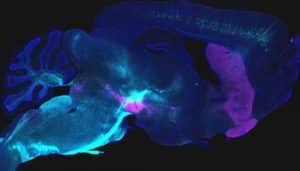
Keynote Speakers
Christina Kim – UC Davis, USA
Karl Deisseroth – Stanford University, USA
Mackenzie Mathis – EPFL, Switzerland
Marie Carlen – Karolinska Institute, Sweden
Michael Bruchas – Univ. of Washington, USA
Simon Wiegert – Univ. Heidelberg, Germany
Stephan Herlitze – Bochum University, Germany
Valentina Emiliani – Institut de la Vision, France
Cyril Herry – Bordeaux University, France
Yaniv Ziv – Weizmann Institute of Science, Israel
OUR SPONSORS

